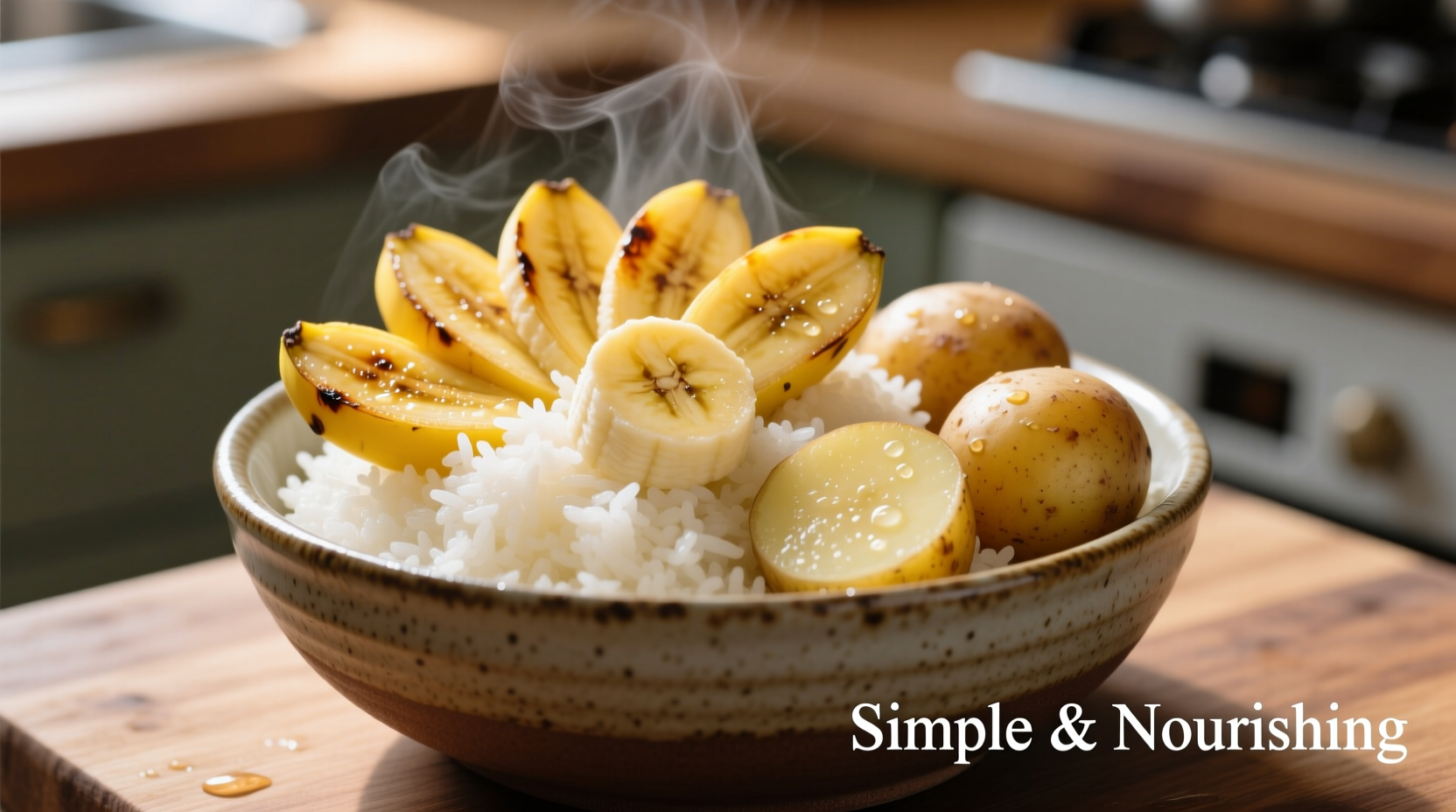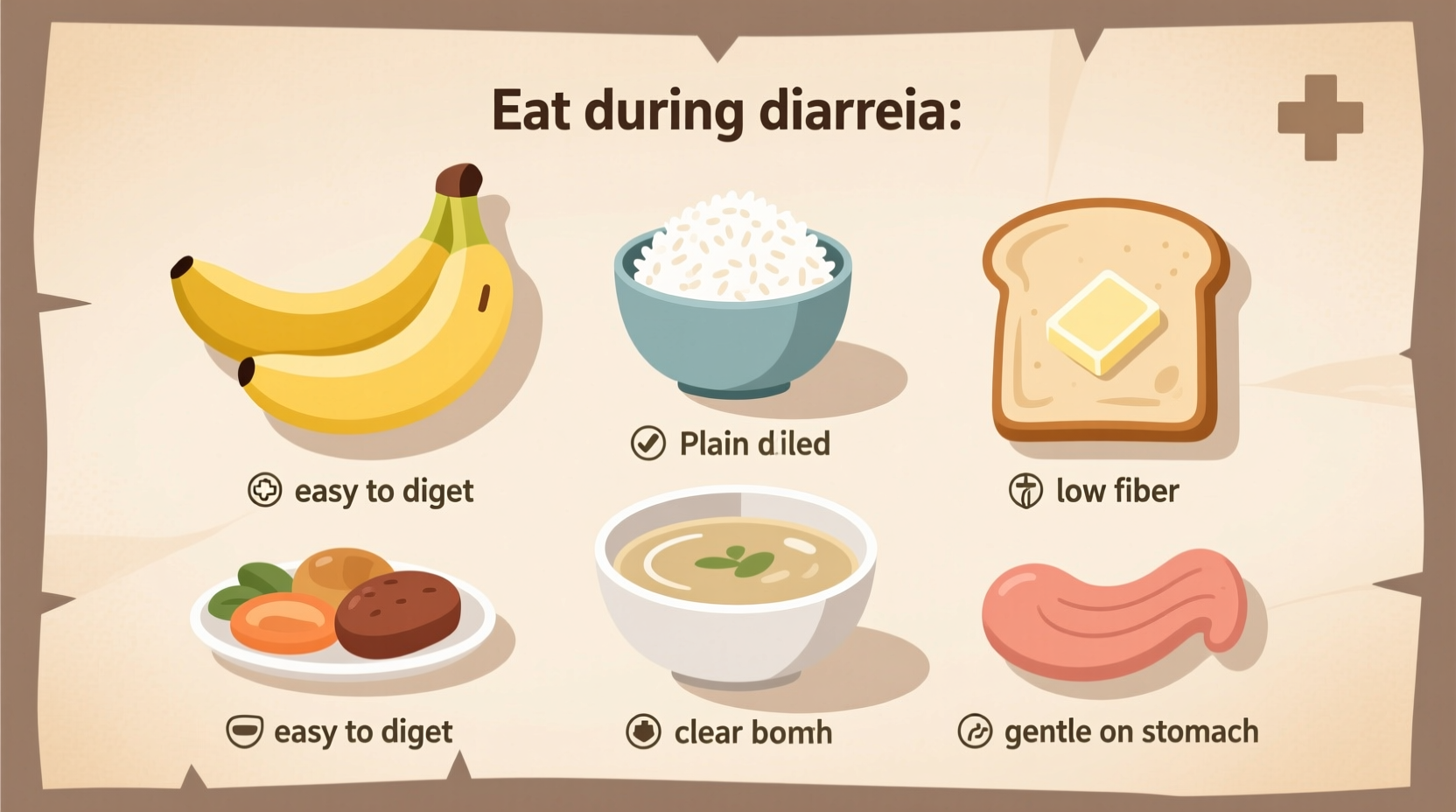If you're searching for what food to eat with diarrhoea, you need practical, medically sound advice right now. Diarrhea dehydrates your body and disrupts your digestive system, making proper food choices critical for recovery. Forget outdated BRAT diet recommendations—modern medical guidance emphasizes balanced nutrition from the start while avoiding irritants that prolong symptoms.
Your Immediate Action Plan
During the first 24 hours of diarrhea, your primary focus should be hydration. The World Health Organization recommends oral rehydration solutions (ORS) over plain water to replace lost electrolytes. WHO data shows that proper rehydration reduces hospitalization risk by 76% in severe cases. After each loose stool, drink ½ to 1 cup of ORS or clear broth.
As nausea subsides, introduce small portions of these gut-friendly foods:
- Boiled white rice (½ cup portions)
- Ripe bananas (½ banana every 2-3 hours)
- Plain toast with a thin layer of honey
- Applesauce (unsweetened)
- Boiled potatoes (without skin)
| Recovery Stage | Recommended Foods | Foods to Avoid | Portion Guidance |
|---|---|---|---|
| Acute Phase (0-24 hrs) | ORS, clear broths, bananas | Dairy, caffeine, spicy foods | Sip 2-4 oz hourly |
| Early Recovery (24-48 hrs) | Rice, toast, boiled potatoes | Fatty meats, raw vegetables | ¼-½ cup every 2-3 hours |
| Mid Recovery (48-72 hrs) | Cooked carrots, oatmeal, lean chicken | Artificial sweeteners, beans | ½ cup meals every 3-4 hours |
| Near Full Recovery (72+ hrs) | Probiotic yogurt, whole grains, soft fruits | Still avoid irritants | Normal portions, monitor response |
Why Modern Guidance Differs From Old Recommendations
Medical understanding of diarrhea management has evolved significantly. The traditional BRAT diet (bananas, rice, applesauce, toast) was once standard but is now considered nutritionally inadequate for recovery. According to Mayo Clinic research, prolonged BRAT diet use can delay healing by lacking essential proteins and fats needed for gut repair.
Current guidelines emphasize:
- Earlier reintroduction of diverse nutrients
- Inclusion of probiotic-rich foods after 24 hours
- Balanced electrolyte replacement
- Avoiding unnecessary food restrictions

Special Considerations for Vulnerable Groups
Children and elderly individuals require special attention during diarrhea episodes. The CDC warns that children can become dangerously dehydrated within hours. For infants, continue breastfeeding or formula while adding ORS. Older adults should monitor for dizziness when standing, which indicates significant fluid loss.
When managing diarrhea with chronic conditions:
- Diabetes: Choose complex carbohydrates like rice over simple sugars
- IBS: Introduce foods more gradually, tracking individual triggers
- Immunocompromised: Avoid raw foods until fully recovered
When to Seek Medical Help
Most diarrhea cases resolve within 2-3 days with proper home care. Contact a healthcare provider immediately if you experience:
- Blood or black stools
- Fever above 102°F (39°C)
- Symptoms lasting more than 48 hours
- Inability to keep fluids down for 12+ hours
- Signs of severe dehydration (dark urine, dizziness, dry mouth)
Long-Term Gut Recovery Strategies
After acute symptoms subside, focus on rebuilding gut health. Incorporate probiotic foods like kefir and fermented vegetables to restore beneficial bacteria. The American College of Gastroenterology recommends continuing probiotic intake for 1-2 weeks post-diarrhea to prevent recurrence.
Gradually reintroduce fiber-rich foods over 5-7 days:
- Start with soluble fiber sources (oatmeal, cooked carrots)
- Add soft fruits (pears, melons) after 72 hours
- Introduce whole grains slowly (quinoa, brown rice)
- Wait 1-2 weeks before adding beans and cruciferous vegetables
Practical Tips for Faster Recovery
Implement these evidence-based strategies to shorten your diarrhea duration:
- Prepare ORS by mixing 6 level teaspoons sugar and ½ teaspoon salt in 1 liter of clean water
- Cool foods are often better tolerated than hot meals during acute phase
- Chew food thoroughly to reduce digestive workload
- Eat smaller, more frequent meals rather than three large ones
- Keep a food journal to identify potential triggers











 浙公网安备
33010002000092号
浙公网安备
33010002000092号 浙B2-20120091-4
浙B2-20120091-4